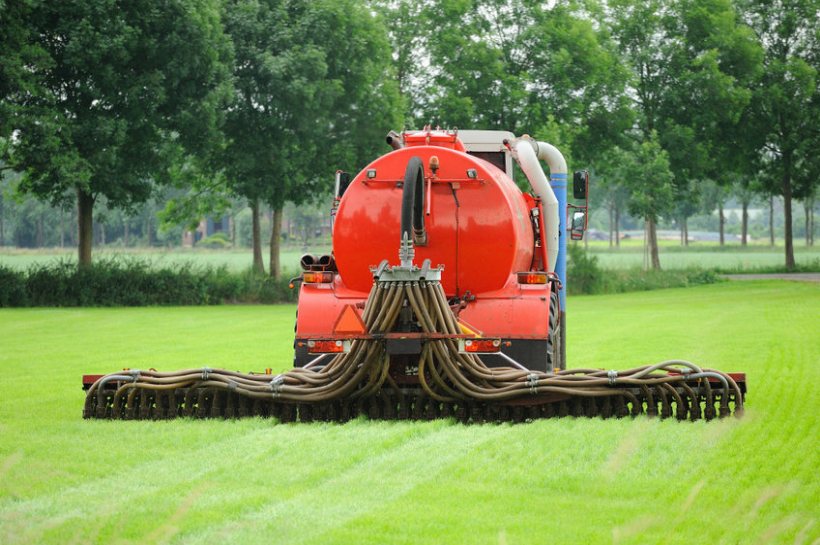
NFU Cymru is backing proposals for a licensing scheme to 'lessen the detrimental impact' that Welsh government regulations governing water quality will have on food production.
The union said that the 170kg per hectare holding nitrogen limit from livestock manures element in the controversial nitrate vulnerable zone (NVZ) regulations would 'negatively affect' farmers.
NFU Cymru has carried out an extensive engagement exercise with its boards and held a number of member meetings to canvas the opinions of farmers.
In its response, it has welcomed Welsh government’s proposals to bring forward a licensing scheme to allow higher levels of nitrogen from livestock manures in certain circumstances.
The union has set out evidence that shows an increase to a 250kg/ha annual holding nitrogen limit from livestock manures "can be justified and will not damage the environment".
Over 1,400 farmers and members of the Welsh food supply chain have submitted their own responses to Welsh government.
NFU Cymru President Aled Jones said: "AHDB modelling shows, based on the available data, that to meet the current 170kg/ha nitrogen limit from livestock manures, the stocking density on Welsh dairy farms would need to reduce by 17%.
"Assuming that the stocking density is lowered strictly through reducing the number of animals, this could lead to an equivalent reduction in milk production of 336 million litres per annum.
“Although Welsh dairy farmers are likely to be the ones most impacted by the 170 kg/ha annual holding nitrogen limit from livestock manures, it is important to state that other sectors will be affected – directly and indirectly."
The stocking limit imposed by the regulations would reduce the likelihood of dairy farms to take in sheep over winter (tack), he said, while a reduction in the number of dairy animals would have a knock-on effect on beef production.
The consequences of the 170kg/ha nitrogen limit from livestock manures comes as farmers experience pressure on their margins due to the effects of agri-inflation and the cost of living crisis.
The price index for farm inputs such as feed, fuel and fertiliser has increased by 22 percent in the last 12 months.
Mr Jones warned: "Many farms simply cannot absorb these increased costs and simultaneously see their earning capacity reduced so substantially.
"Global volatility is threatening the stability of the world’s food production, food security and energy security and it is clear that action is needed to protect our food producing capacity."
He added that NFU Cymru welcomed Welsh government proposals to bring forward a licensing scheme where farmers could apply for a licence to increase the higher annual holding nitrogen limit from livestock manures up to 250kg/ha.
"NFU Cymru is clear that the development of the licensing scheme should follow the principles of good regulation, for example avoiding imposing unnecessary regulatory burden," Mr Jones said.
"As such, the process of applying for the licence should be as simple and straightforward as possible based on the approaches adopted in England and Northern Ireland.
“Based on the evidence, NFU Cymru strongly asserts that a licensing scheme can be justified on the basis of objective criteria."
